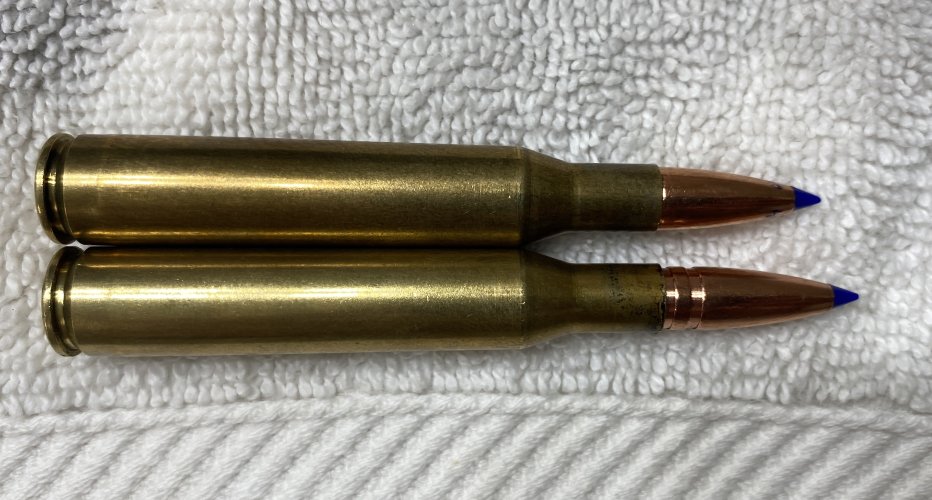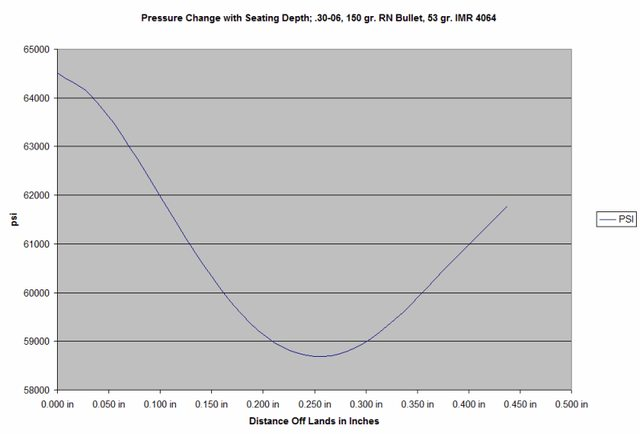Bullshot
Well-known member
Newbie question regarding principle of seating depth / pressure applied to Barnes TTSX.
All else being equal, would there be much difference in pressure from a TTSX seated just off the lands, base of bullet above the bottom of neck to one seated way off the lands and deep in the neck with base below the neck, assuming uncompressed load.
2nd question, between an uncompressed 99% load and a mildly compressed say 101% load, is there typically any pressure spike or would it be expected to follow a more linear rise commensurate with just the extra powder (assuming you are safely working up).
Just trying to better understand what these factors (seat depth and compression) independently introduce to the equation of safe reloading since a few of my reloads are hovering in the max book area (w/uncompressed powder and middle of the road seating) and I am wanting to tinker more with seating and that last .25- 1 grain of powder to finalize a recipe.
All else being equal, would there be much difference in pressure from a TTSX seated just off the lands, base of bullet above the bottom of neck to one seated way off the lands and deep in the neck with base below the neck, assuming uncompressed load.
2nd question, between an uncompressed 99% load and a mildly compressed say 101% load, is there typically any pressure spike or would it be expected to follow a more linear rise commensurate with just the extra powder (assuming you are safely working up).
Just trying to better understand what these factors (seat depth and compression) independently introduce to the equation of safe reloading since a few of my reloads are hovering in the max book area (w/uncompressed powder and middle of the road seating) and I am wanting to tinker more with seating and that last .25- 1 grain of powder to finalize a recipe.
Last edited:






